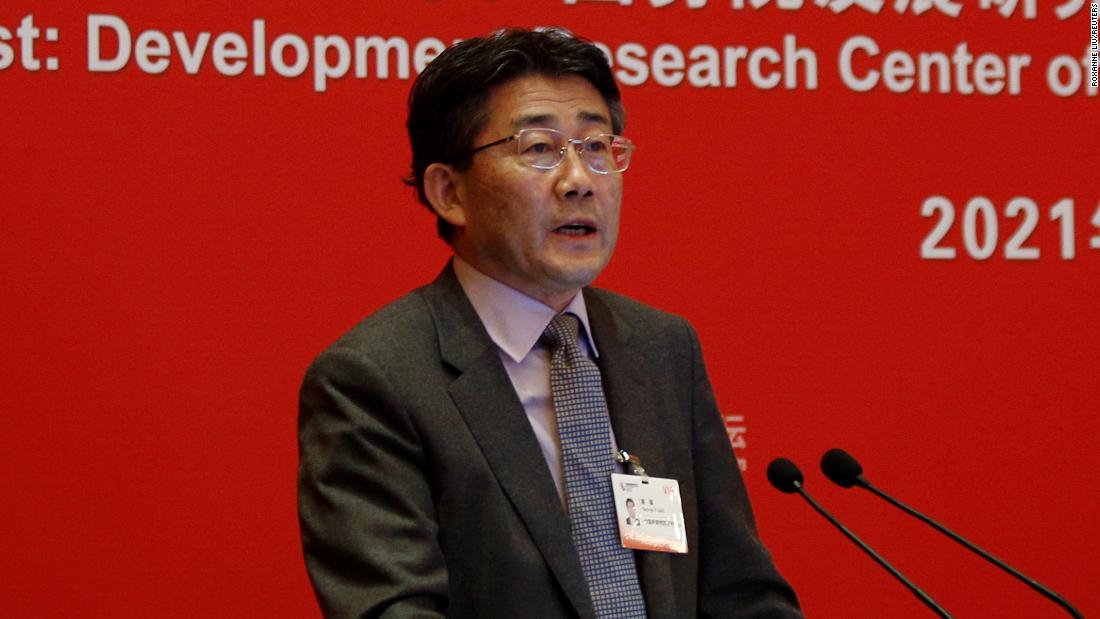
The leadership change, announced by the agency on Tuesday, comes amid a restructuring that has seen the China CDC moved from its position directly under the monolithic centrally controlled National Health Commission and placed within a new nominally streamlined bureau, borne of pandemic-era calls for reform.
Oxford University-educated and internationally connected Gao, 60, known also by his Chinese name Gao Fu, would no longer serve as director “due to his age,” according to the China CDC readout of a meeting announcing the changes. Sixty is a standard retirement age for male civil servants, though many do not adhere to this.
He would be succeeded by former president of the Nanjing Medical University Shen Hongbing, currently vice-director of the National Administration of Disease Prevention and Control, the new bureau established in 2021.
The shift brings to an end the tenure of an internationally respected virologist who observers say grappled with the limitations of an agency with little sway over policy-making — a key distinction between China’s CDC and the US agency it was modeled after.
Legacy of an overseas-educated virologist
Gao also oversaw the agency at a time of increasing acrimony between China and the United States, made worse by questions over the origins of the coronavirus and accusations that China had suppressed its investigation.
Gao, who gave presentations at international scientific forums in English and had professional relationships with Western scientists, including top American epidemiologist Anthony Fauci, was widely respected among the international scientific community and seen as a rare point of contact with China.
“He will be remembered for being more open-minded and willing to reach out to his counterparts in Western countries,” said Yanzhong Huang, a senior fellow for global health at the Council on Foreign Relations in New York.
“Under him the China CDC became a more prominent actor in China’s response to the pandemic, especially in the early stages of the outbreak, and also an important window for the outside world to learn about China’s Covid response,” Huang said.
Prior to the pandemic, Gao was known for his work in Sierra Leone countering a 2014 Ebola outbreak, when he was still deputy director of the China CDC. He took up the director role in 2017.
Gao was among a group of top-level health officials who traveled to Wuhan, the epicenter of the first known outbreak of Covid-19, before the disease became a global crisis in January, 2020. China has been criticized for its actions during that period, due to the three-week lag between local officials’ announcement of the outbreak and confirmation the virus could pass between people.
Gao played a key role in early scientific papers documenting the outbreak in Wuhan, and went on to develop one of the seven Covid-19 vaccines authorized for use in China.
But he has sparked controversy within China and is considered by some in China’s public health community as a “loose cannon,” according to Huang.
He was also criticized after an interview last fall with the editor of Caijing magazine, in which he discussed the conditions under which China might relax its zero-Covid policy — a sensitive subject in China, where the policy is viewed as the personal directive of leader Xi Jinping.
On Tuesday, Gao, who remains vice-president of China’s grant-giving National Natural Science Foundation, said he supported the changes and that he would “continue contributing to developing disease control and public health.”
Virus flare-ups
Gao’s departure was announced as China continues to grapple with flare-ups of the virus, relying on frequent mass testing and snap lockdowns to handle outbreaks, while most of the rest of the world has moved into some mode of living with the virus.
As of Wednesday, China has identified 776 high-risk areas in 24 cities across the country, where residents are subject to partial or full lockdowns, according to information from the country’s State Council.
But as the head of China CDC, Gao himself had a limited role in forming policy to respond to and control the virus, observers say, as such matters are dictated by the cabinet-level National Health Commission, while the CDC has played a more technical, advisory role.
“Though restricted, (Gao) still tried his best to fulfill CDC’s role as a public health and scientific adviser,” said Xi Chen, an associate professor at the Yale School of Public Health.
“His scientific publications in the early stage of the pandemic helped inform the world about the virus. He also championed the publication of a scientific journal in English — China CDC Weekly — that aimed to make communications with the global public health arena more timely and transparent.”
It remains unclear exactly what role the agency will play now that it is under the National Administration of Disease Prevention and Control. That body was set up following calls to strengthen China’s disease prevention and control systems in the wake of the Covid-19 outbreak.
In Tuesday’s meeting, Wang Hesheng, head of the National Administration of Disease Prevention and Control, praised Gao’s contributions and laid out several goals regarding “reform” of the CDC and its operations under the new leadership. These included taking a “clear stand on politics” and to “faithfully implement General Secretary Xi Jinping’s important directives and instructions.”
And as a result of the new structure, it is possible that Gao’s successor could be given more power, according to Chen. “Hopefully, the empowerment of China CDC under Shen may achieve something George Gao was unable to,” he said.
CNN’s Beijing bureau contributed to this report.